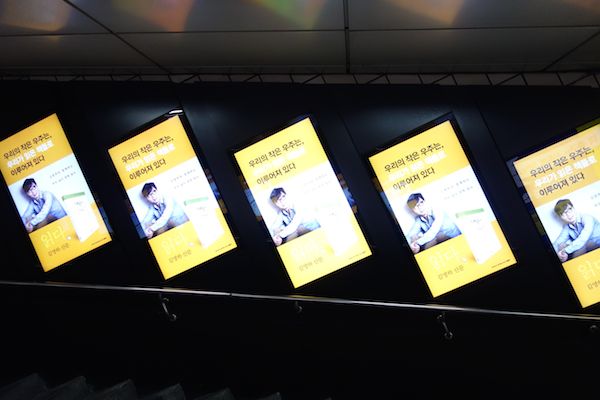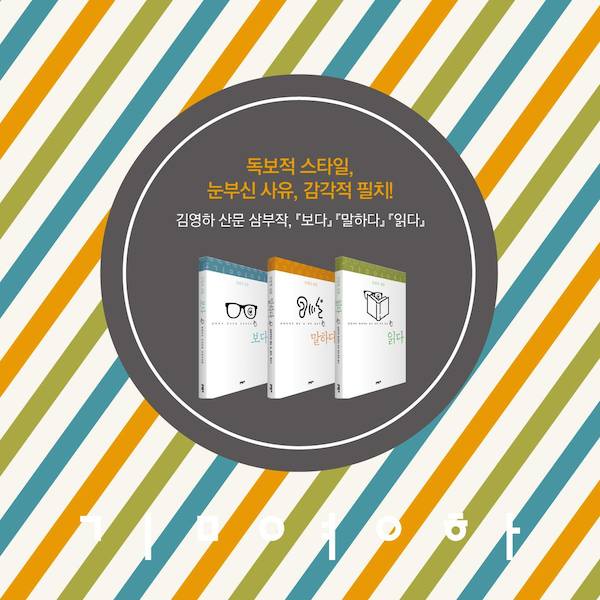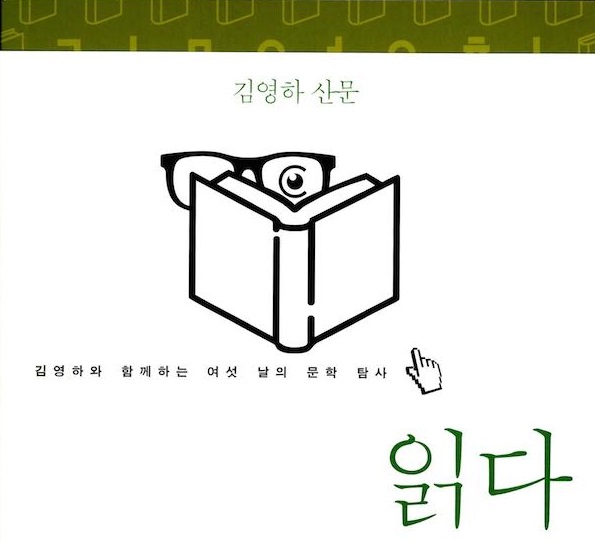When I started reading Korean novels seriously, I started reading Kim Young-ha — going on, in fact, to produce a profile of his work right here in the LARB. The world of modern Korean letters has produced few hits in translation, much less in translation into English, where Shin Kyung-sook’s Oprah-anointed Please Look After Mom (despite Shin’s recent and confusing plagiarism scandal or maybe non-scandal) remains the Korean novel to beat in the Anglosphere. But were I a betting man, I’d put money on Kim as the next big thing in global Korean literature; unlike most of his colleagues, he already has a deliberately international outlook, not to mention three novels available in English with major publishers: I Have the Right to Destroy Myself (나는 나를 파괴할 권리가 있다), Your Republic Is Calling You (빛의 제국), and Black Flower (검은 꽃), all of which draw on Korean culture as well as literature’s more placeless powers to make their impacts.
The prospect of reading Kim’s other books in the original has provided more than its share of motivation for me to get a handle on the Korean language. And I don’t just mean his novels, though I do relish the opportunity to read his currently-under-translation I Can Hear Your Voice (너의 목소리가 들려) before it comes out in English next year and Diary of a Murderer (살인자의 기억법) before it does some time in the far-flung, not-firmly-scheduled future. I mean his collections of essays, a favorite form of mine but one which barely any publishers bother bringing into English, even though they can make big splashes in their writers’ home countries. It just recently happened with Kim’s Read (읽다) which completes a trilogy of slim nonfiction books that started with See (보다), which rounded up his columns written for a film magazine, and Speak (말하다), a collection of his talks and interviews.
With the success of See and Speak, Kim seemed to have tapped into a demand for not just the fruits of his imagination but his observations on storytelling culture as well. This justified spending the time and effort to make Read not out of previous writings, but all new material: a series of six lectures, which he delivered live, one per fortnight, in the run-up to the book’s release. In them, he talks about the classics, what about the stories told in the classics have allowed them to endure, what the classics have technically and thematically in common with modern stories told today on the page as well as the screen, and why one might want to read the classics at all. The result references and analyzes everything from The Odyssey to Collateral, Don Quixote to The Big Bang Theory, Crime and Punishment to Norwegian Wood, The Stranger to The Sopranos.
For much of his twenty-year career so far, Kim hasn’t just written books for his countrymen to read, but has advocated to them the act of reading itself. Before Read, this mission manifested in his podcast Time to Read a Book (김영하의 책 읽는 시간), subject of a previous post here on the Korea Blog, and as it turns out, something of a proving ground for the ideas expanded upon in the new book. These include the features of the 24-hour story as prescribed by Aristotle’s Poetics (and as practiced by Kim himself in Your Republic is Calling You, a day in the life of its North Korean sleeper agent protagonist suddenly called back home), the use of characters themselves absorbed in fictions (not just the Man of La Mancha, but Emma Bovary, Jay Gatsby, Leonard Hofstadter and Sheldon Cooper), and the novel as a kind of natural landscape for the reader to wander while experiencing its joys and pains, savoring all the myriad connections to be found between all the stories written throughout the history of literature.
Asked why he himself reads novels, Kim replies by paraphrasing Sir Edmund Hillary: “Because they’re there.” But according to the numbers, most South Koreans don’t share his motivation: despite impressive literacy rates, the country tends to languish in the middle, or more often at the bottom, when ranked by the amount of reading its people do for pleasure. I’ve heard mostly simple and even dismissive explanations for this, claims that the period of rapid industrialization that stretched from the 1950s at least through the 1990s left Koreans “too busy” for a pursuit as unproductive as reading books. But could it also have to do with the novel’s relative lack of penetration, as a form, into the culture?
In Read‘s fifth lecture, Kim explores “the world of the charming monster,” a character type we in the West know from the examples he puts before his audience: Tony Soprano, Hannibal Lecter, Crime and Punishment‘s Raskolnikov, Lolita‘s Humbert Humbert. These he frames as examples of the most interesting character type, which occupy one corner of the matrix (a matrix, incidentally, I’ve personally witnessed him draw on a bar napkin) with “good” and “bad” on one axis and “simple” and “complicated” on the other. This produces four quadrants: one for simply good characters, one for simply bad characters, one for complicatedly good characters, and one for the Sopranos, the Lecters, and Raskolnikovs, and the Humberts of the world — the complicatedly bad ones.
Much Korean literature has thus far tended to feature either simply or complicatedly good protagonists tormented by, and sometimes sacrificing themselves to, simply bad antagonists. This jibes with the complaints I’ve heard from Korean friends about the oversimplified way history gets taught in schools here, usually in the form of stories of essentially people — benevolent rulers, brave military men, tireless freedom fighters, peace-loving citizens — against wave after historical wave of essentially bad intruders and occupiers. Just as a history with its eyes open to moral complexity, and especially the complexity of what in other contexts gets called evil, is much more fascinating than those with their eyes closed to it, a novel willing to admit and even examine the existence of the complicatedly bad is much more compelling than those that aren’t.
Kim, on some level, must have known this from the jump; his debut novel I Have the Right to Destroy Myself follows, among other characters paintable in neither black nor white, an artistically inclined professional suicide-enabler. You can rest assured that, when Diary of a Murderer finally appears in English, it will offer no flat condemnation of its title character. In this way and others, Kim has positioned himself on the vanguard of Korean literature, which, in terms of texts written in the Korean alphabet rather than in classical Chinese, only really goes back about a century. That makes it still a fresh literature, and thus one excitingly open to the formative powers of Kim and other writers of his young generation (at least by the standards of the official Korean literary apparatus, which equates prizes with legitimacy and hesitates to hand many out to anyone under fifty). In order to push the Korean novel forward, then, it makes sense that, searching for what makes any literature worth reading in the first place, he would look back.
You can follow Colin Marshall at his web site, on Twitter @colinmarshall, or on Facebook.




